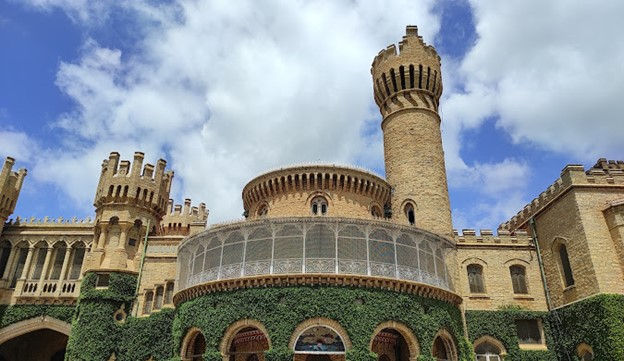Value of work: Lessons from India
- academiaexhorter
- Nov 25, 2023
- 2 min read
Updated: Nov 25, 2023
Professor Dieu Hack-Polay

In November 2023, I visit India, specifically the city of Bangalore. I have transited through India before but this time I had the opportunity to spend more time with my hosts, the Welingkar Institute of Management. Last week I reported on my visit to India, making the point that God’s earth is beautiful everywhere.
I was touched by the kindness of the people who received me well. The welcome was awesome; the respect accorded to me, and the other guest was remarkable. The students, staff and faculty all give great attention to the guests, showing the extraordinary human warmth from Indian culture.
However, an important take from the visit was the work that every Indian person I have seen put in the everyday life of the country. I was taken aback by the work ethics I saw. First, contrary to the assumption that being late for business is a feature of many emerging economies, I found everyone rallying to their chores timely. More remarkable was the early start of many businesses and the late closure of some. Travelling from my hotel back to the airport, I set off at 4 a.m. I was therefore expecting to travel through a largely sleepy city. However, to my amazement, many businesses were open, especially in the informal economy and the SMEs. It is not surprising that the research evidence shows that about seventy per cent of many developing economies rests on the small businesses. Men and women were on the motorcycles, tricycles, cars, and lorries, transporting goods and delivering services.
This type of work ethics does not derive only from the desire to make ends meet. But it is a response to a divine order to work. In Genesis 3:19 God commanded humans to work in those terms: “You will have to work hard and sweat to make the soil produce anything”. Some have interpreted this as a curse from God, hence assuming that work is curse. However, this is far from that. Work is a source of liberation from the servitude of poverty and hardship. Work is a blessing. When we see where India was some 30-40 years ago and compare to where the country is now, there is no secret to its development: only work has produced this phenomenal result. India’s economy is now largely thanking the United Kingdom, its former colonial power, as well that of many western nations that were previously ahead.
To go from a developing low-income country to emerge as one of the greatest economies in the world takes work, strategy, and peace. The Indian people seemed to have gathered all these attributes. Other emerging countries that see emulating the West as far-fetched now have a good partner to look up to and emulate. Because many emerging countries and India share similar colonial history of oppression, exploitation and liberation, there could be greater chemistry and a more balanced relationship.
Professor Dieu Hack-Polay
Academia pro Christo
Email: academia.exhorter@gmail.com
Facebook: https://www.facebook.com/


Comments